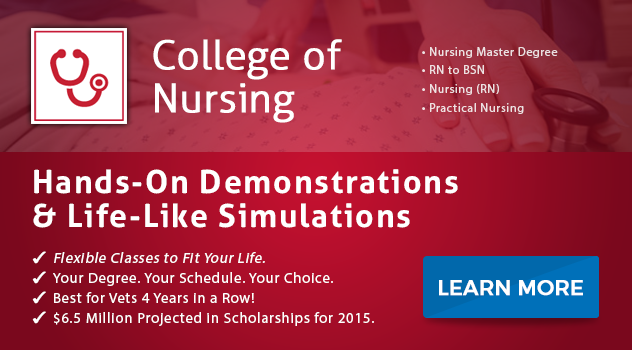
How to Become a Labor & Delivery Nurse in 5 Simple Steps
The medical field is an attractive place to work for people who want to do something that brings joy to people's lives, and helps ease the suffering of so many. Working with mothers as they go through pregnancy and birth is one of the oldest and most revered ways for nurses to serve, and you can join their ranks in just a few years by following this step-by-step outline for becoming a labor and delivery nurse.
1. Understand What the Position Entails
While serving in the delivery room is a unique, joyful, and rewarding experience, the duties of a labor and delivery nurse go far beyond the moment of birth. Pregnant mothers will seek advice from you about their worries and concerns, while you help with various procedures and examinations like an ultrasound or a cervical inspection. After the birth, you will be responsible for caring for both infant and mother as they recover from the ordeal. You'll have the chance to be a part of every unique moment in the process, whether it's the happiness of putting a newborn into their mother's arms, cleaning up a variety of bodily fluids while listening to the screams of labor, or even dealing with tragic complications.
Other labor and delivery nurses are an essential source of information for budding practitioners, so take the time to ask around local campuses, hospitals, or online to gain a broad collection of experiences and insights to help you decide if becoming a nurse is the right path for you.
2. Complete Your Core Nursing Education
As you might have guessed from the list of duties that a labor and delivery nurse has, education plays a vital role in enabling a nurse to do their job. Every nurse, regardless of specialty, undergoes a rigorous training regimen that covers the broad range of medical skills necessary for their position. The minimum requirement is a Registered Nursing Associate Degree that instructs the budding nurse on pharmacology, microbiology, anatomy, surgical operations, nutrition, and specific nursing needs for patients like the mentally ill or children.
Upon completion of your degree, the diploma and certificate of completion will serve as part of your ticket into the world of nursing.
3. Get Your RN License
The licensing requirements for nurses are specific to the state in which you want to work, but there is one overarching constant: the National Certification Licensure Examination for Registered Nurses (NCLEX-RN). You should be suitably prepared for your examination thanks to your nursing degree, but ample study sessions and practice tests will help save you from potentially having to retake it.
4. Find a Place to Work and Gain Experience
There is no substitute for real experience, and you are now ready to don your scrubs and get to work. You may have to begin in a more generalized position to gain work experience before being assigned specifically to the OB/GYN, depending on the rules and policies of the state and hospital at which you apply.
You will likely be able to find a position in the OB/GYN of a nearby hospital or doctor's office without much hassle, but expanding your search to other cities can give you more options and leverage for negotiation. Just remember that moving across state lines will likely require additional testing for licensing.
5. Earn Your Inpatient Obstetric Nursing Certification
Even with an education, license, and experience, you still have one final step on your path to becoming a fully-fledged obstetrics nurse. The National Certification Corporation is the official body that maintains the tests used for various nursing specialties and assigns certifications to those who pass the tests. Their certification for Inpatient Obstetric Nursing (RNC-OB) is the first stop for nurses who want to make their name in labor and delivery. You'll see questions related more specifically to your chosen field than those you saw in the NCLEX-RN, such as the chances of various labor complications based on the medical history of the mother or how to respond in the case of a premature birth.
By passing the RNC-OB, you'll have a handy designation that shows potential employers that you know how to create the healthiest environment possible for mother and child as they go through the difficult process of birth.
Move Forward with Your Nursing Degree
If you think you have the drive and desire to become a labor and delivery nurse, it all begins with enrolling in an educational curriculum like the Registered Nursing Associate Degree program at ECPI University. Don't hesitate to set yourself on a path to a well-respected, meaningful, and intrinsically satisfying profession. It could be the Best Decision You Ever Make!
I'm super excited Danielle signed up at ecpi to become a nurse along side me
— Tayluh (@Taylor_harlow) September 20, 2015
DISCLAIMER – ECPI University makes no claim, warranty, or guarantee as to actual employability or earning potential to current, past or future students or graduates of any educational program we offer. The ECPI University website is published for informational purposes only. Every effort is made to ensure the accuracy of information contained on the ECPI.edu domain; however, no warranty of accuracy is made. No contractual rights, either expressed or implied, are created by its content.
For more information about ECPI University or any of our programs click here: http://www.ecpi.edu/ or http://ow.ly/Ca1ya.



